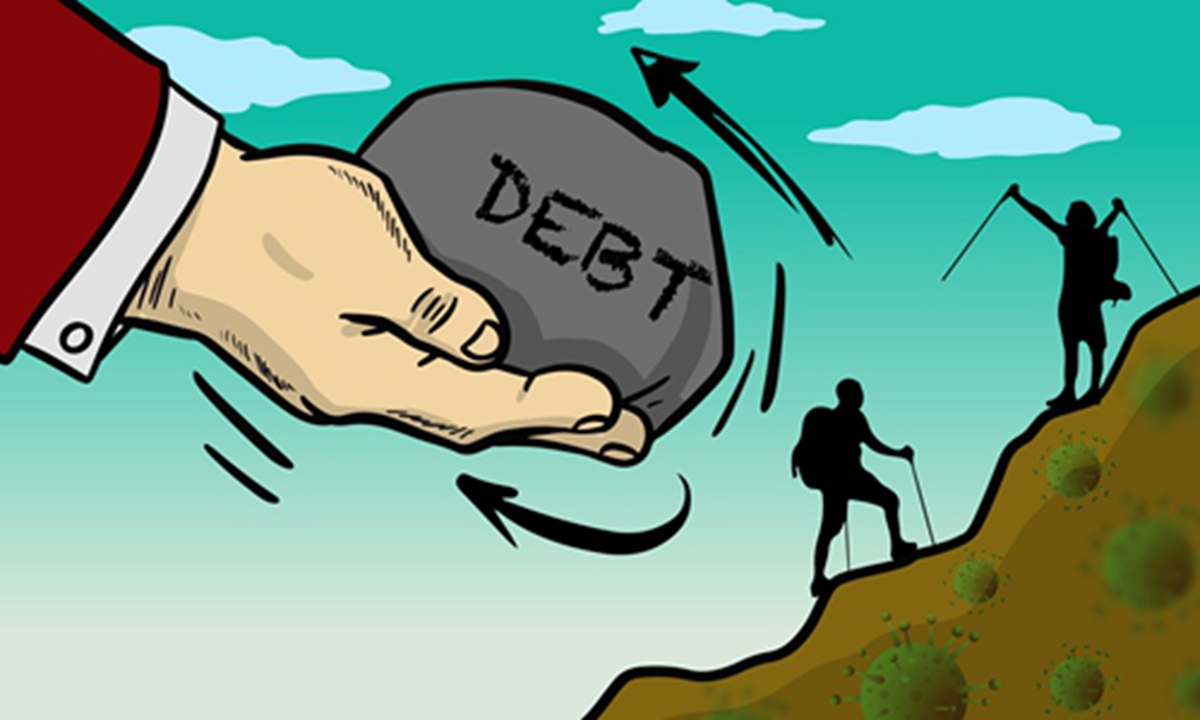Zambia debt woes expose difficulties in international assistance
By Song Wei Source: Global Times Published: 2020/10/29 21:59:24

Illustration: Luo Xuan/GT
Zambia has reached a deal to defer debt repayments that were due this month on a loan from the China Development Bank (CDB), the Reuters reported.Zambia's debt woes show that the impact of the COVID-19 pandemic on international development assistance is increasing. Developing countries, especially the Least Developed Countries (LDC), are facing more difficulties.
For the majority of underdeveloped countries, the pandemic has exacerbated the risks they face. There are signs that in underdeveloped countries, whether in terms of governance, gender equality, social equity, or many other goals set out in the 2030 Agenda for Sustainable Development, they have stalled.
The impact of systemic shocks is increasing and it can potentially erase at least the progress these countries have made in economic development since 2015. With regard to issues such as poverty eradication, these shocks may set back global development for 30 years, and the scope of negative effects on the poorest and most vulnerable countries and regions will continue to expand. According to World Bank new poverty projections, by 2021, 26 million people will have fallen into extreme poverty.
For Western countries, the pandemic has led to shrinking funds and capabilities for foreign aid. The impact of the pandemic this year has hit global trade and investment with unprecedented speed and scale, exposing the fragility of modern supply chains. Unemployment rates in developed countries are rising, and income inequality is also increasing. In response to the ever-increasing problems, politicians often do not confront the problem directly and seek solutions, but adopt a nationalist approach, divert public anger, cut foreign aid funds, and concentrate resources on domestic priorities at the expense of support for the less developed countries.
The most serious consequence of the rise of protectionism and populism in developed countries is its destruction to the existing multilateral system. Reflected in the field of international aid, mistrust among creditors has further increased.
While China is actively promoting the implementation of the G20 "debt relief initiative," Western countries are beginning to worry that their debt forgiveness to African countries will be used to repay Chinese loans. Although this worry is absurd, it directly reflects how bleak the prospects for international coordination in the future are.
This is the most difficult phase of development developing countries are undergoing since World War II. Facing the ever-increasing structural risks and challenges in the field of international development assistance, there are higher expectations on China in terms of foreign aid.
China has to strengthen efforts in the field of international multilateral coordination, lead international aid and debt coordination, strive for more international support, and jointly assist underdeveloped countries.
Meanwhile, China needs to increase the transparency of its international aid. If China's foreign aid data is not released in time, it will lead to misinterpretation and speculation by the outside world. China's foreign aid urgently needs to establish an open database, and the discrediting like the "debt trap" is bound to be self-defeating.
The negative impact of the pandemic has spread to international development aid, and the expectations and pressures China faces in foreign aid are also increasing sharply. But innovation and confidence are important guarantees for China to lead some underdeveloped countries out of current difficulties and achieve sustainable development.
The author is an associate research fellow at the Chinese Academy of International Trade and Economic Cooperation under the Ministry of Commerce. bizopinion@globaltimes.com.cn
Posted in: EXPERT ASSESSMENT